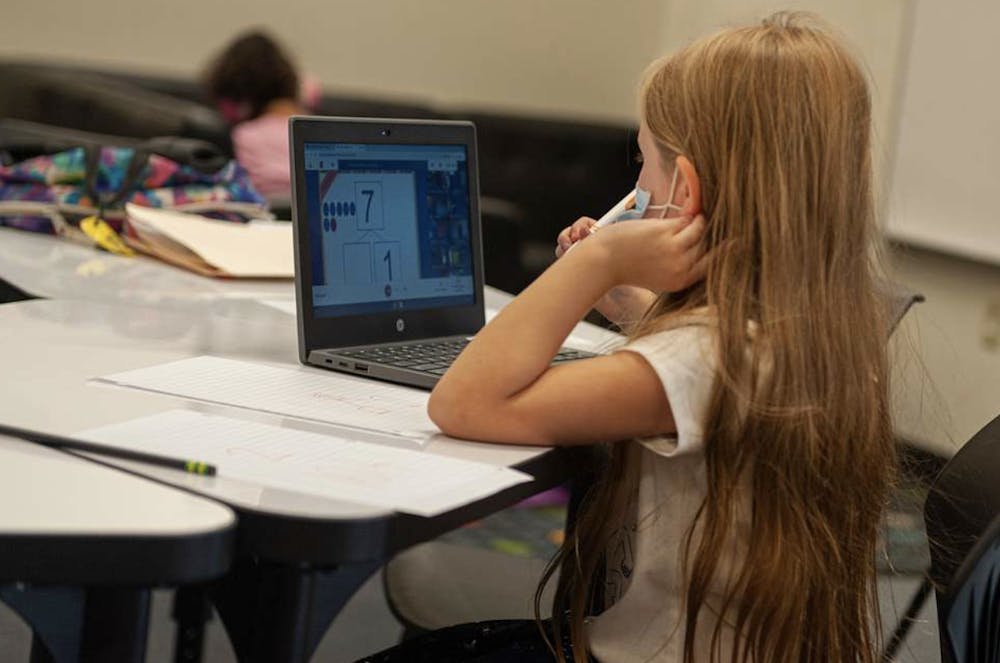While many first graders eagerly jump into reading, this was not the case for Parallel Learning CEO and Forbes’ 30 Under 30 Education Entrepreneur Diana Heldfond, who spoke in a Nov. 30 installment of the Leading Change: Perspectives from Outside of Medicine talk series titled "Neurodiversity and Leadership."
Heldfond explained that her struggles with learning spawned feelings of embarrassment and frustration, particularly when it came to learning to read.
“I vividly remember my classmates cuddling up in our classroom's nooks and crannies, reading through full Harry Potter chapter books... I, on the other hand, was stuck. Sitting with my teacher at a tiny table in the middle of the classroom, trying and struggling to make it through a rhyming picture book with three words on each page," she said. "It was from that moment onwards that I remember hating reading time in school. I would think to myself, 'Who would pick up a book for fun?'”
Later that year, Heldfond was diagnosed with dyslexia, a diagnosis she shares with 5-10% of the population. With early intervention, however, she was able to learn how to work with dyslexia and ADHD, which she was also diagnosed with later.
“I had the best-case scenario and looked at myself as a success story,” she explained. “My success story is a testament to the advantages of financial resources and overly attentive parents and, above all, early detection and early intervention for my conditions.”
However, these resources are not available to everyone.
The current special education system struggles to meet the needs of all students. While federal law requires that schools provide a “free appropriate public education,” this is not always the case. Heldfond argued that in its current form, special education is often used as a dumping ground for unresolved problems.
“In reality… our special education system has long been burdened with intricacies that really impede its effectiveness,” she explained.
Funding disparities lead to wildly different quality of education in different states and municipalities. Additionally, these disparities often fall along racial and socioeconomic lines. On top of this, many who do make their way into special education programs lack continuity of care. Heldfold drew attention to the shortage of special education teachers, which further jeopardizes student learning. She highlighted that 45% of schools had vacancies for special education roles.
These trends have serious consequences. According to Heldfond, special needs students are more likely to face disciplinary action, drop out of school and, eventually, end up in the criminal justice system.
In 2021, Heldfond founded Parallel Learning to address some of the problems facing the special education system. By providing testing services and online sessions with professionals, she hopes to streamline the special education process.
“[We] partner with school districts across the country to effectively deliver virtual psycho-educational assessments and specialized interventions like speech and language therapy, behavioral health, counseling and specialized teaching, ensuring that every student has access to high quality, special education services that are tailored to fit their unique learning style, whether that's stemming from learning disabilities, mental health challenges or other factors,” she said.
Although Heldfond acknowledges that virtual interventions do not work for all students, she believes that Parallel Learning’s model will be able to address the needs of around 75% of students. However, the virtual medium allows providers to serve more students and students from a wider geographical range. Parallel Learning is also exploring applications of Artificial Intelligence to process records and streamline administrative tasks.
As she works to improve outcomes for students with differences, she acknowledges that her own differences have also been a strength.
“My style of dyslexic thinking, in which I process information in pretty unique ways, has empowered me to perceive solutions and possibilities that might elude others,” she said.





